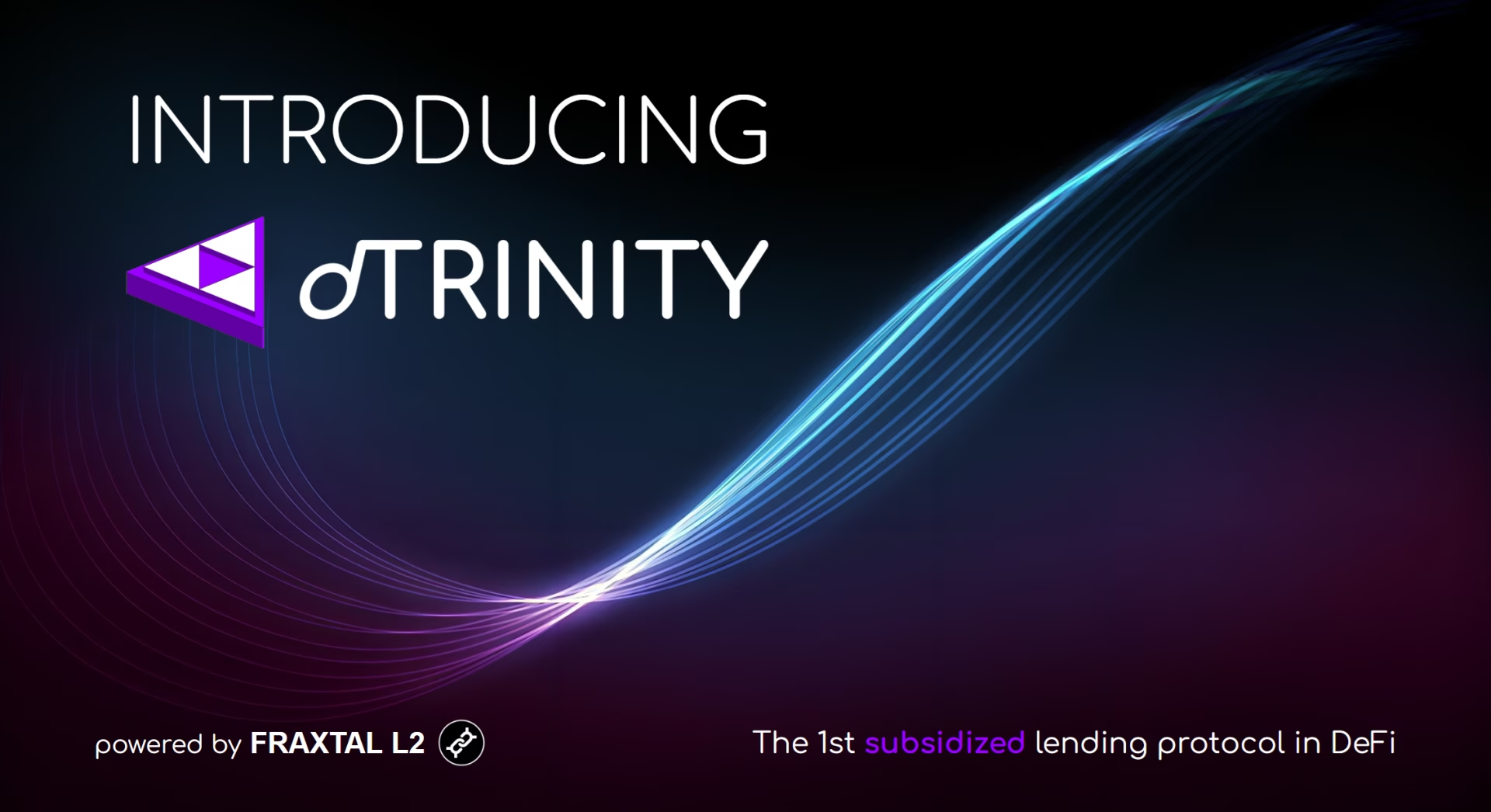December 18, 2024 – Singapore, Singapore
dTRINITY, a next-generation stablecoin liquidity protocol, has announced its mainnet debut on the Fraxtal layer-two network.
The platform is designed to lower interest expenses and improve yields for stablecoin users, addressing the key challenge of rising credit costs in DeFi.
At the core of dTRINITY is a protocol-native stablecoin (dUSD), which serves as the unified liquidity layer between its money markets (dLEND, an Aave version three fork) and external liquidity pools (e.g., Curve).
dUSD is backed one-to-one by an on-chain collateral reserve consisting of stablecoins such as USDC, FRAX and DAI, as well as yield coins like sFRAX and sDAI.
Exogenous yields from the reserve are redirected to fund ongoing interest rebates for dUSD borrowers on dLEND, based on their outstanding debts, which reduces the effective borrowing cost.
This mechanism not only stimulates borrowing demand but also drives more sustainable utilization and yields for dUSD lenders.
dTRINITY is launching on Fraxtal as its genesis network in a strategic collaboration with Frax to optimize ecosystem liquidity and user incentives.
Fraxtal is an EVM-equivalent rollup with a scalable smart contract platform and efficient execution environment powered by the OP stack.
Users can take advantage of Fraxtal’s fast transaction speed, low gas fees, robust network security and unique blockspace rewards, further enhancing their benefits.
In the near future, dTRINITY plans to expand to Ethereum and other emerging blockchains, strengthening cross-chain liquidity and interoperability with Fraxtal as the network scales.
Key features of dTRINITY
- Subsidized interest rate model dTRINITY’s innovative subsidized interest rate model lowers the equilibrium of stablecoin borrowing costs on dLEND versus other protocols without impacting lending yields. In fact, rebates at low utilization levels could even result in negative interest rates for dUSD borrowers (i.e., borrowers could get paid to borrow).
- Liquidity incentives dUSD lenders and liquidity providers benefit from a combination of protocol rewards and external incentives from strategic partners in both points and tokens for supplying and bolstering liquidity in the ecosystem.
- Security and risk management dTRINITY has successfully completed smart contract audits with three leading blockchain security firms Halborn, Verichains and Cyberscope. Additionally, the protocol…
Click Here to Read the Full Original Article at The Daily Hodl…
























